
Reporting From Experience
News Anchor Dianne Parker’s Journey from Stalking Victim to Voice for Change
Editor’s Note: YVW made the deliberate decision not to name the man convicted in the felony stalking of Dianne Parker. While transparency is important, psychological experts advised that naming him could unintentionally embolden his behavior, especially now that he is out of jail. Out of concern for Dianne’s safety, we decided to alter his name to conceal his identity.
For more than two decades, Dianne Parker has been a familiar face in Billings’ broadcast news scene. She’s anchored mornings, evenings, weekends — you name it — at both of the city’s TV stations. Viewers know her as calm, credible and compassionate. So in 2022, when a fan sent her a cheery bouquet of sunflowers with a handwritten note, she thought it was nice.
“I thought nothing of it,” Dianne recalls. “It’s not every day someone tells you, ‘You brighten my day.’”
A week later came a basket of chocolate-dipped fruit from the same man with a note that read, Just Friends? Then came a card that read, I would like to start something. It was signed: Love, Daniel.
“That one put me on alert,” Dianne says. “Something wasn’t quite right.”
That was the start of the man’s three-year campaign of stalking, one that, in time, would escalate to the felony level. It left Dianne with severe anxiety and PTSD and forced her to fear for the safety of her two young kids.
She’s covered a slew of criminal cases over the years in her line of work. She never imagined she’d be at the center of one. “I never saw this coming,” she says.
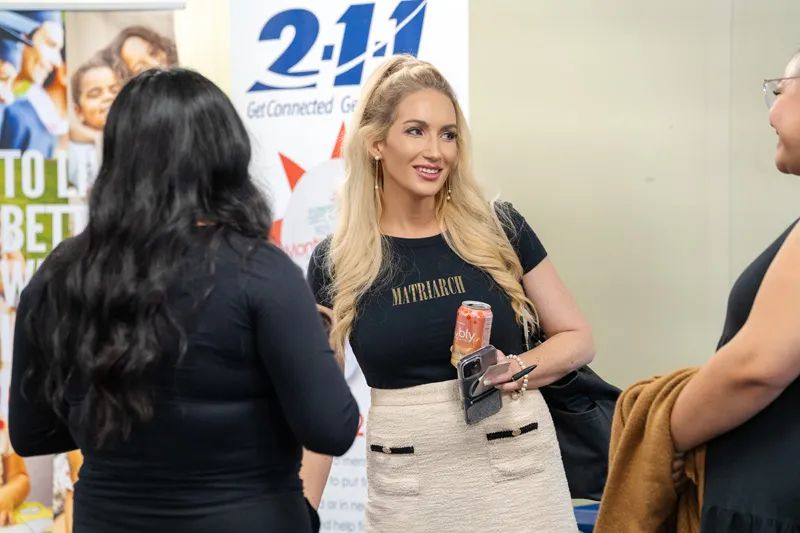
Growing up in the small town of Chugwater, Wyoming, as the daughter of an organic oat and wheat farmer, there was no such thing as a stranger. “I always see the best in people,” Dianne says. “I’m a pretty trusting person.”
When she earned the title of valedictorian at her high school, it came with a full-ride scholarship to the University of Wyoming, where she studied graphic design and journalism. She got an internship at KGWN in Cheyenne in the commercial production department. It wasn’t until she decided to tag along with a news crew, however, that she found her passion. She loved the unpredictability of the news business, the human stories, and the chance to learn something new every day.
Since then, Dianne has solidified her place as a trusted news anchor. She’s a two-time Emmy Award winner and has a handful of state broadcasting honors under her belt.
Being in the thick of breaking news stories, she quickly learned to take precautions on the job. “You always know you could be walking into a scene where something could be going on,” she says. “One time, I was scanner chasing a little too close and I actually heard bullets fly by my car window. I learned those lessons very early on, that your life is more important, but I never thought I’d actually be a victim in this capacity.”
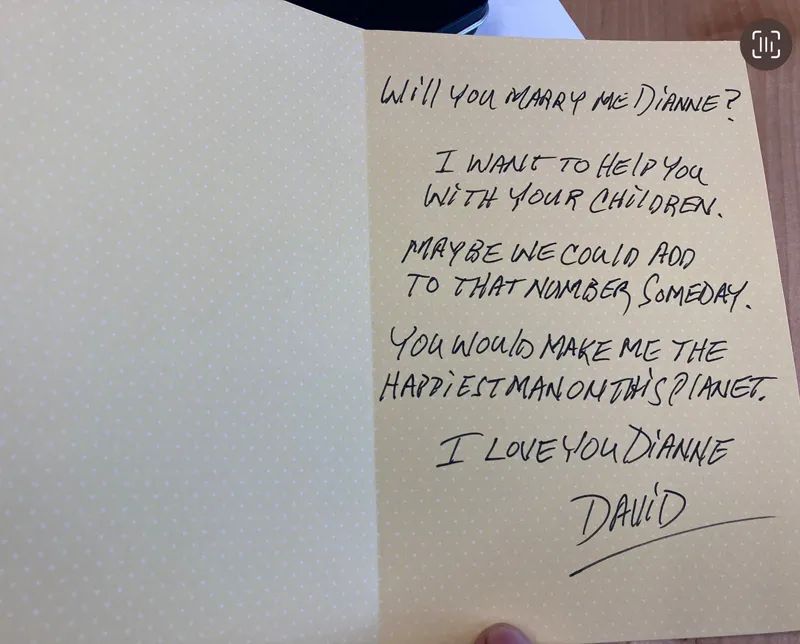
After the first gift and then the next two arrived on her newsroom desk, Dianne says, “The cards started getting more aggressive because I wasn’t responding.”
She started to make a paper trail of the odd communications and eventually filed a police report. When Billings Police officers visited the man’s home and asked him to stop bothering her, things quieted down for about a year.
But then, in January 2024, the cycle began again when Dianne received flowers with a note proposing marriage.
“He said he wanted to have babies with me and he wanted to help me raise my children,” she says. “That was very alarming to me. He knew that I had two young children and that I was a single mom.”
Dianne had never crossed paths or even met her 67-year-old stalker before.
“I would smile or make a gesture on the news, he would think it was directed at him,” Dianne says. “Nothing I could do other than going off the air would stop him.”
She found herself calling the police non-emergency number so often to report his behavior that she was urged to file for and was then granted a temporary order of protection. Even after that, however, came more cards and collect calls from the Yellowstone County Detention Center after he’d been picked up on a violation.
By late February 2024, Dianne petitioned the court and was granted a 50-year permanent order of protection. Daniel was court-ordered to wear an ankle monitoring system so police could keep track of him. He wasn’t permitted to come within 1,500 feet of Dianne’s home or work. At 67, there was no way Daniel would outlive the order.
He violated it within days.
“I got a card at work from him that said, ‘50 years Dianne, really? How about 50 days, 50 minutes or 50 seconds?’ Each choice had a check box by it,” Dianne says. “At the end it said, ‘Love, Daniel.’ I just knew that was a direct threat.”
When officers showed up to arrest him for violating the protection order, “He was very combative with the police. He was sitting in his chair with a sidearm and exactly 50 rounds of ammunition.” Dianne says, one bullet for every year of the protective order. “From that point on, instead of being obsessed and in love with me, he became upset, angry and threatening.”
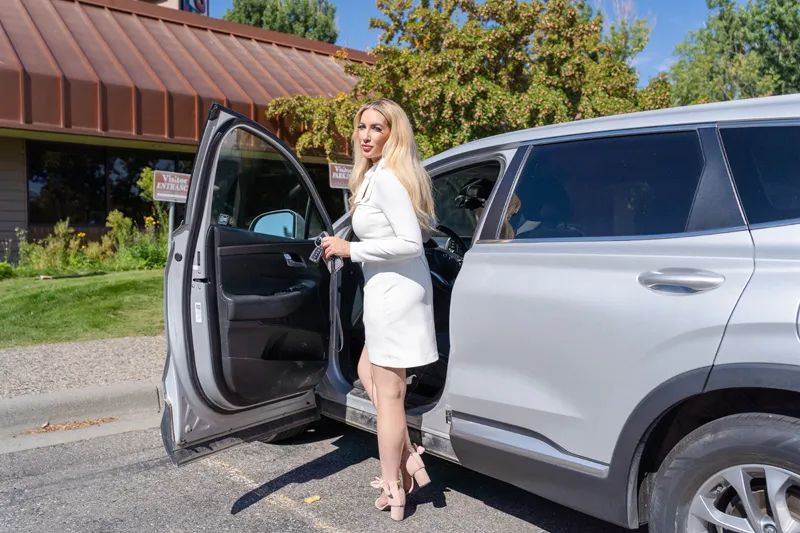
In March of that year, court records show Daniel entered Dianne’s exclusion zones around her home and work no less than 42 times.
“He would be sitting in his vehicle, lurking,” Dianne says. “Alternatives, who does the ankle monitoring, would call and tell me, ‘He’s in your zone at your work right now and it looks like he’s circling around your office.’”
Dianne’s office was right next to a huge window visible from the street. Her employer issued a half dozen emails ordering him to cease and desist and a picture of Daniel was posted urging her co-workers to prevent the man from coming inside the building. Dianne wanted to scream at him to stop.
“From the research that I have done on stalking, any form of communication back to a stalker is like oxygen to him,” she says. “I would just be giving him more oxygen. It would be taking it to the next level in his mind.”
Eventually, Daniel would learn where Dianne lived. One night she got a call from Alternatives, Inc., telling her Daniel was in the exclusion zone around her home.
“I did feel helpless,” Dianne says with tears welling in her eyes. “I felt so helpless.”
She stocked pepper spray in every room in her home and mounted cameras at every one of the entry points. She took self-defense classes and when those things didn’t make her feel safe, “We started living in hotels from night to night,” she says.
The problem, Dianne says, was the fact that Daniel was a man of means. He’d be arrested for a violation, bond would be set, and he’d immediately bail himself out.
“He knew he was going to violate the order, so he just brought cash,” she says. In February of this year, Dianne says, “One of the judges said enough is enough. He has cash on him when he gets arrested.” A $75,000 cash bond was set, which kept him in jail until July.
“It seems like a lot of violations and a lot of contact has to happen before it raises to the level of felony stalking,” says Danielle Myers, Dianne’s court appointed victim/witness coordinator. “And at this point, the victim is already in serious emotional distress.” With each new violation, Danielle adds, “It starts all over for her again.”
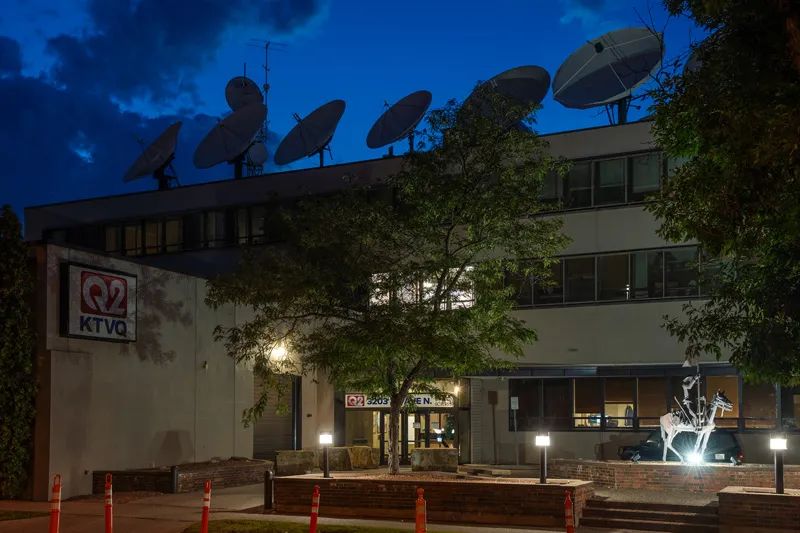
By this time, Dianne’s anxiety was soaring. During much of 2024, she was forced to take months off work on short-term and then long-term disability to work on her mental health.
“I literally couldn’t think,” she says. “It got to the point where it became so debilitating. I felt like my life was on hold.” She remembers spending days lying on her couch. “I would just let hours go by.”
She realized her children bore a heavy burden as well. It was affecting her then 5-year-old at school. During recess, Dianne says, “She told me for the very first time that she had been hiding under playground equipment every time she saw a black truck drive by.” She adds, “I decided that I’m not going to live like this. I don’t want to be a victim anymore.”
That’s when something shifted inside her and she decided instead of being worried about being on the air, she’d use her job as a platform to advocate for women just like her.
“I feel like I have a unique opportunity and I want to use that for the good of everyone,” she says. “There are gaps in the system all the way around. It will take someone like me to help start outlining things so we can find solutions.”
Her first order of business was to tighten up not only the way exclusion zones are shared but how victims are notified when a stalker violates them.
“This is what Alternatives gave Daniel to sign,” Dianne says, pointing to a black and white map of a section of the city. Right where her home would sit is a big circle showing the 1,500-foot radius around it. “They don’t put the address but they put a pinpoint on it and also on my kids’ schools. This is where my kids live with their dad,” Dianne says, pointing to the map. With frustration in her voice, she adds, “I didn’t know this until my case was escalated to the felony level. I was shocked. It literally gave him the place where I live.”
“Absolutely, an offender can figure it out,” says Hollie Bowman who is the former director of community programs at Alternatives Inc. She adds in stalking cases a victim could decide to keep these areas confidential, but that leaves a gap in prosecution. “The problem that you have with confidential exclusion zones is an offender can never violate them because they don’t know they’re not supposed to be there. There’s that catch-22.”
When an offender enters a “no zone,” a victim is supposed to be notified. If contact can’t be made, law enforcement is supposed to do a welfare check.
“If police get called for a welfare check, that’s their lowest priority,” Dianne says. “Sadly, I hope it won’t take one of us being murdered for things to change.”
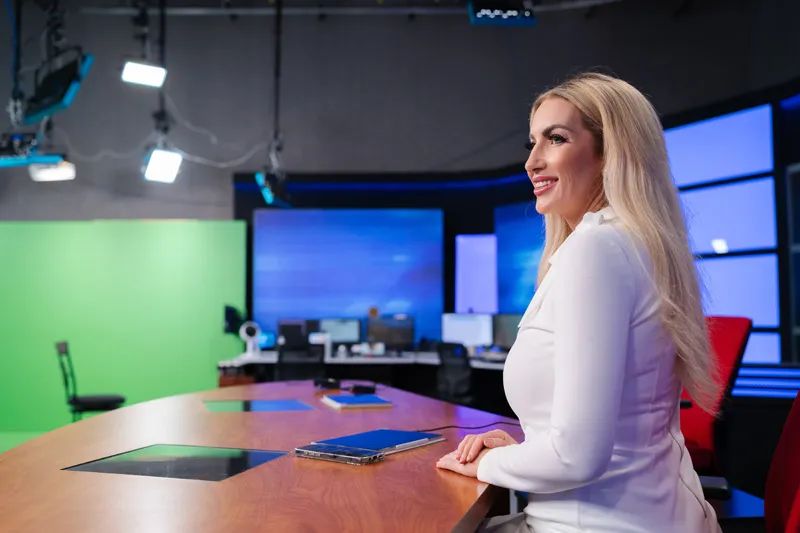
Dianne knows firsthand that human error can play a part in neglecting to notify a victim that their offender is close by. In one instance, she found out four days after the fact that Daniel had showed up multiple times at her home and work.
“He was at my work for 2-1/2 hours and I didn’t know it,” she says. “He was in his vehicle across the street, parked, waiting for me to come and go.”
“We changed a lot of internal policies after that,” Hollie says of Alternatives’ monitoring program.
As a board member of Alternatives, Dianne kept pressing these issues in hopes of finding a solution. It came thanks to a relatively new app called SCRAM Ally that works with an offender’s GPS ankle monitor. A victim can program exclusion zones on the app and when an offender enters one of them, it sends an immediate push notification to the victim, to the monitoring service, law enforcement and probation and parole. She’s now testing this app for Alternatives. She wants it to be available for all victims of stalking or domestic violence with the dollar a day fee to use it levied on their offenders.
In late September, Dianne will have another chance to make an impact. She’s a guest speaker at the McGuire Conference put on by the Billings Area Family Violence Task Force (BAFVTF).
“I am going to go through holes in the system that I experienced as a victim to hopefully give that full-circle view,” Dianne says.
“With this conference, we’re hoping that between law enforcement, probation and parole and anyone else who is working with stalking victims that we can get a better coordinated response to help these individuals,” says Lisa Cetrone Wells. She’s been the executive director of the BAFVTF for going on 30 years and has watched this conference make a difference — from helping launch the Northern Lights Family Justice Center to uniting advocates to create the Yellowstone Human Trafficking Task Force.
“When victims are able to tell their stories, it helps others to understand what’s going on. It helps other victims say, ‘Hey, this is happening to me. This has got to stop.’ I’m proud of Dianne,” Lisa says. “She is facing this head on.”
In time, Dianne would love to write a local resource guide for stalking and domestic violence victims.
“There’s no handbook on how to live your new life as a victim, or to live your life even better as a survivor,” Dianne says. Having information for victim-witness advocates to share at the time a case enters the court system would, in her mind, be key. “Most of the victims I have talked to are spiraling, just like I did, because it is so hard to navigate the system,” she says. “I want to help other victims to be able to get through this very long, very draining, very debilitating process in a much easier and straightforward way.”
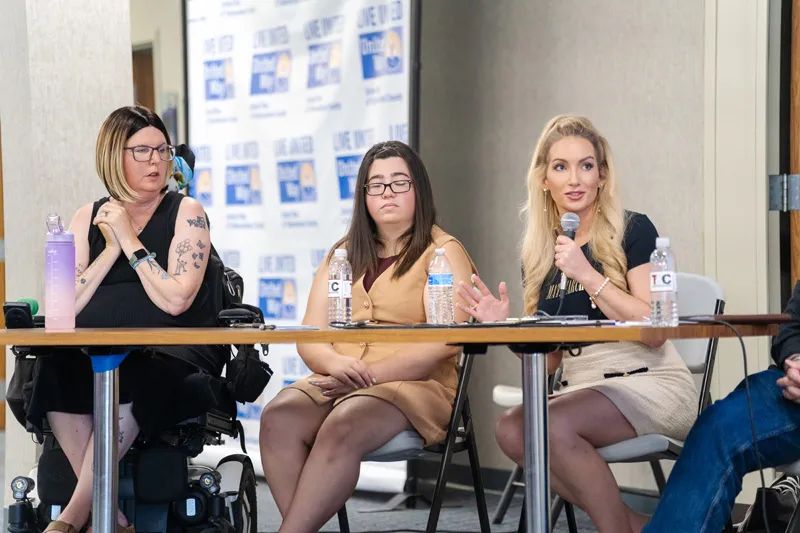
In late July of this year, Dianne’s stalker was released from jail on a separate stalking charge. He’s to remain on an ankle monitoring system for his five-year suspended sentence tied to Dianne’s case. So far, he’s kept his distance even though Dianne is back to work, anchoring a statewide morning show produced at the NBC affiliate in town.
“Right now, I’m enjoying the stability of doing a job that I love and am passionate about,” she says.
In mid-July, Dianne remembers sitting in the newsroom, hearing the phone ring. She debated answering it but ended up taking the call of a woman who was looking for help. She had watched Dianne on the news report about a recent domestic violence case that had ended in a 37-year-old woman’s homicide.
“She told me she was a victim of rape. She had been raped twice by someone she had met on Tinder after going on a couple of dates,” Dianne says, adding the woman had already gotten a temporary order of protection and the man was already violating it. When Dianne began to dig into the case, “I learned he had a warrant out for his arrest in the state of Oregon for rape,” she says.
She helped the woman get an appointment at the YWCA, which aids victims of domestic abuse, sexual assault and human trafficking, and remembers asking the woman, “Do you have someone to go with you?” When the woman said, no, Dianne met her there.
“I sat there with her for two hours while she cried during her intake interview. Just to be there with her because she was alone, that was worth it for me,” Dianne says.
She knows with each connection, each brush with another victim, each chance to speak publicly about her experiences, she’s advancing the cause and hopefully helping future victims in the process.
“I want victims to know that they are not alone,” Dianne says.












